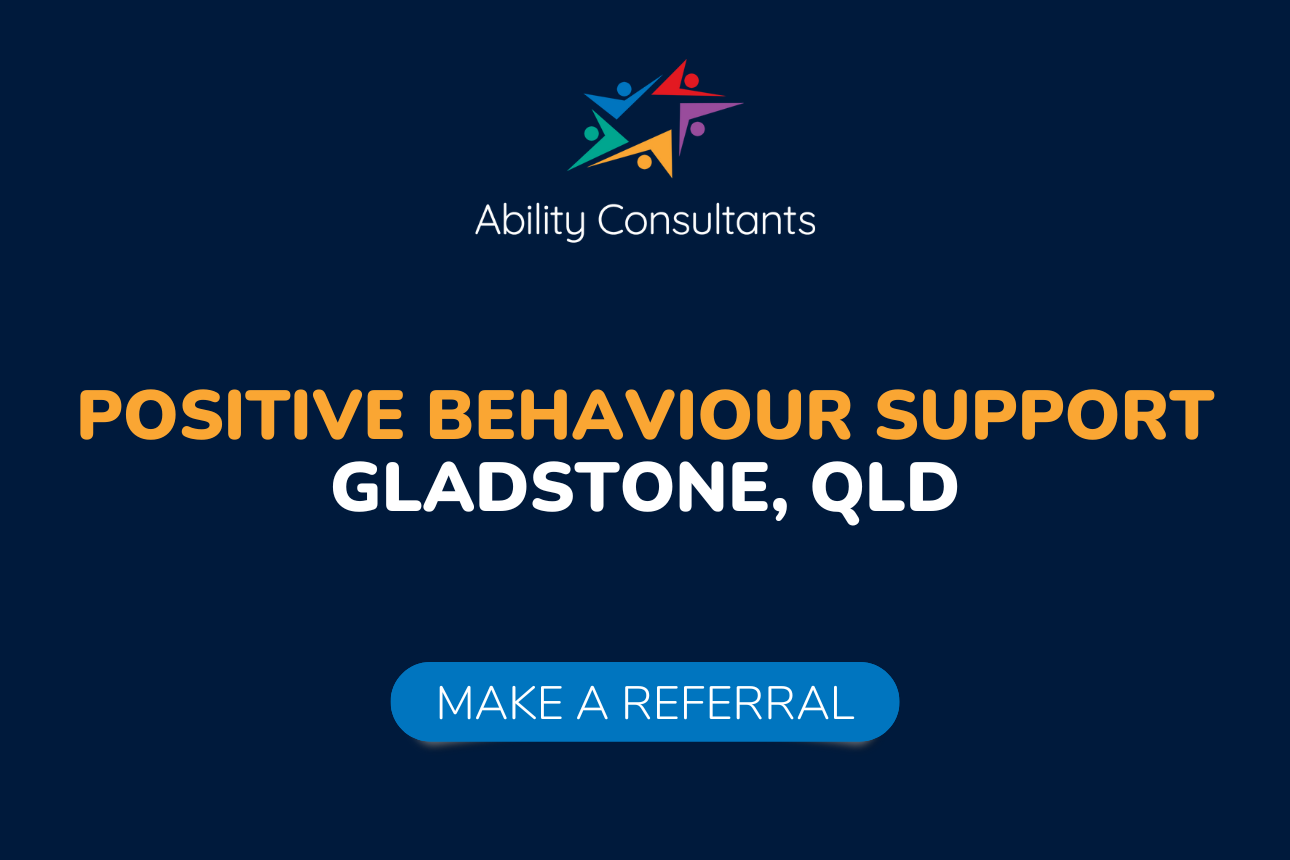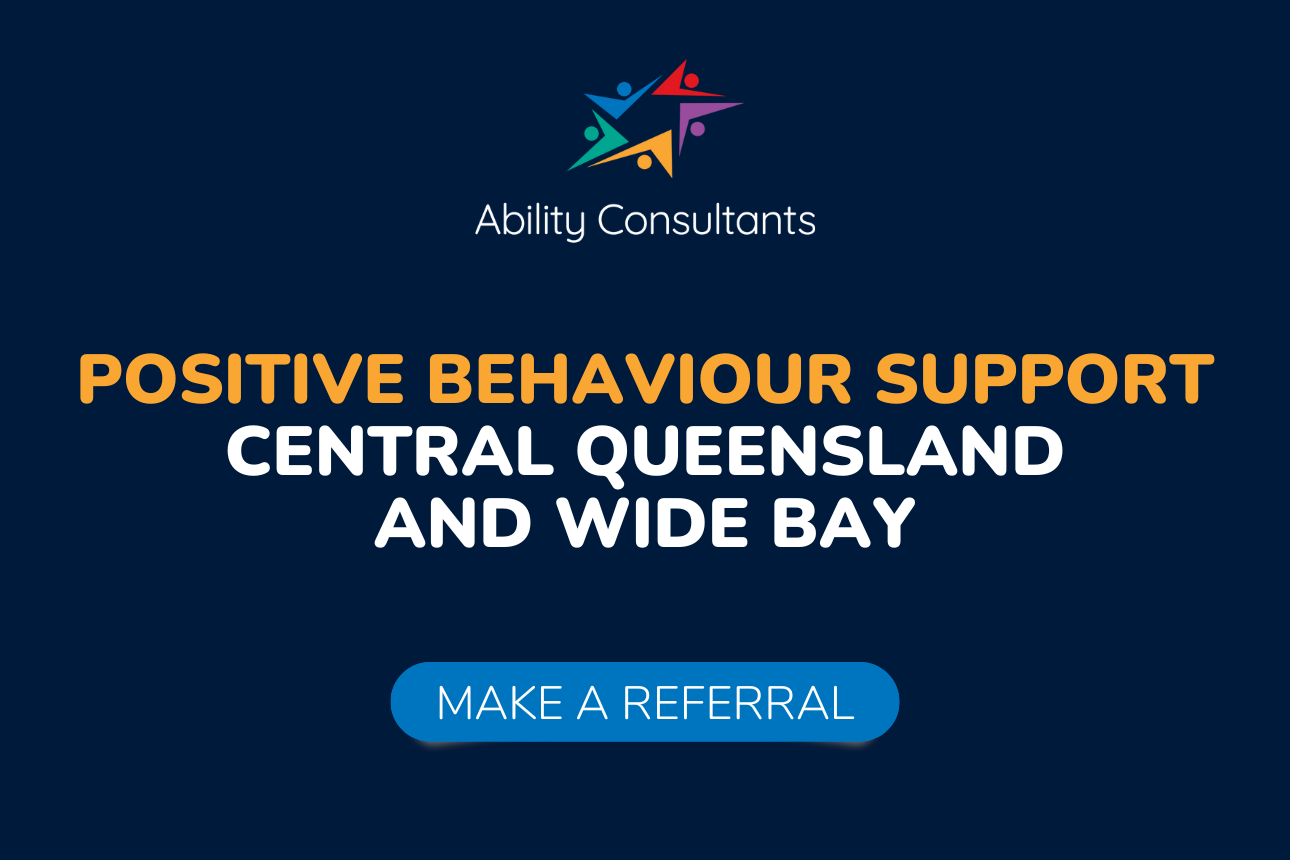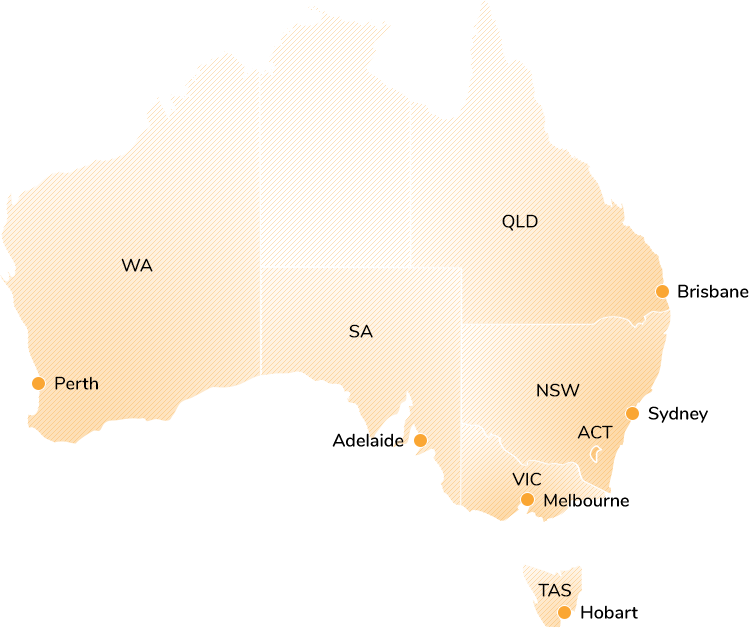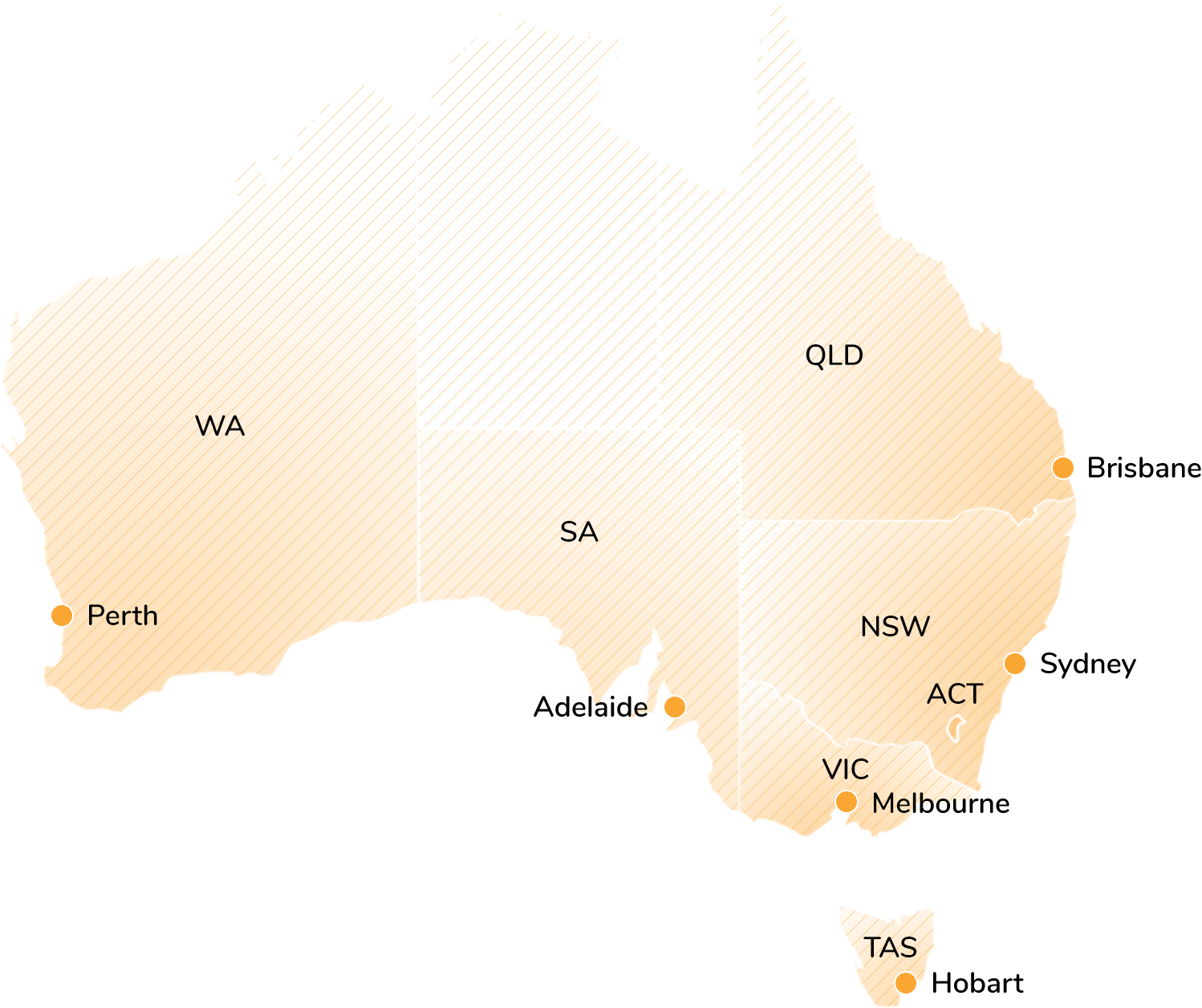Positive Behaviour Support in Gladstone and Rockhampton: Meet PBS practitioner Maggie Herring
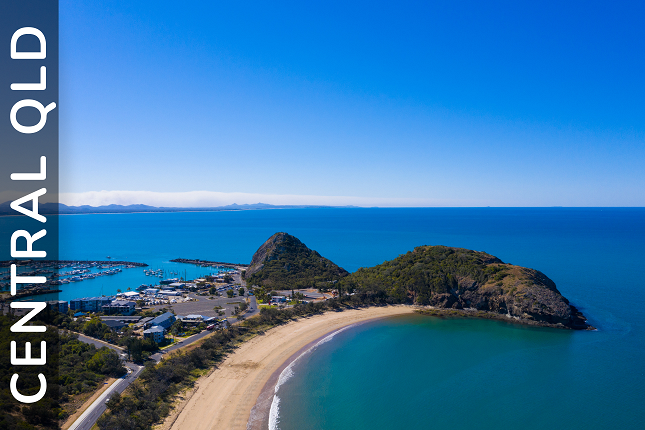
Find Positive Behaviour Support in Gladstone, Rockhampton and Bundaberg, Queensland. We support NDIS participants with life-changing Positive Behaviour Support in Central Queensland and Wide Bay, through in-person support and telePBS. If you’re ready to get started, please make an online referral and we can get the process started for you.
Today, we are pleased to introduce Maggie Herring, behaviour support practitioner in Central Queensland. Maggie supports communities from Gladstone, Rockhampton and Agnes Water through to Biloela and Bundaberg.
Maggie’s work supporting children and adults is shaped by her qualifications and experience in psychological science, health, creative arts and languages. Maggie embraces Positive Behaviour Support as a means to further her mission of promoting dignity, autonomy and resilience in her clients.
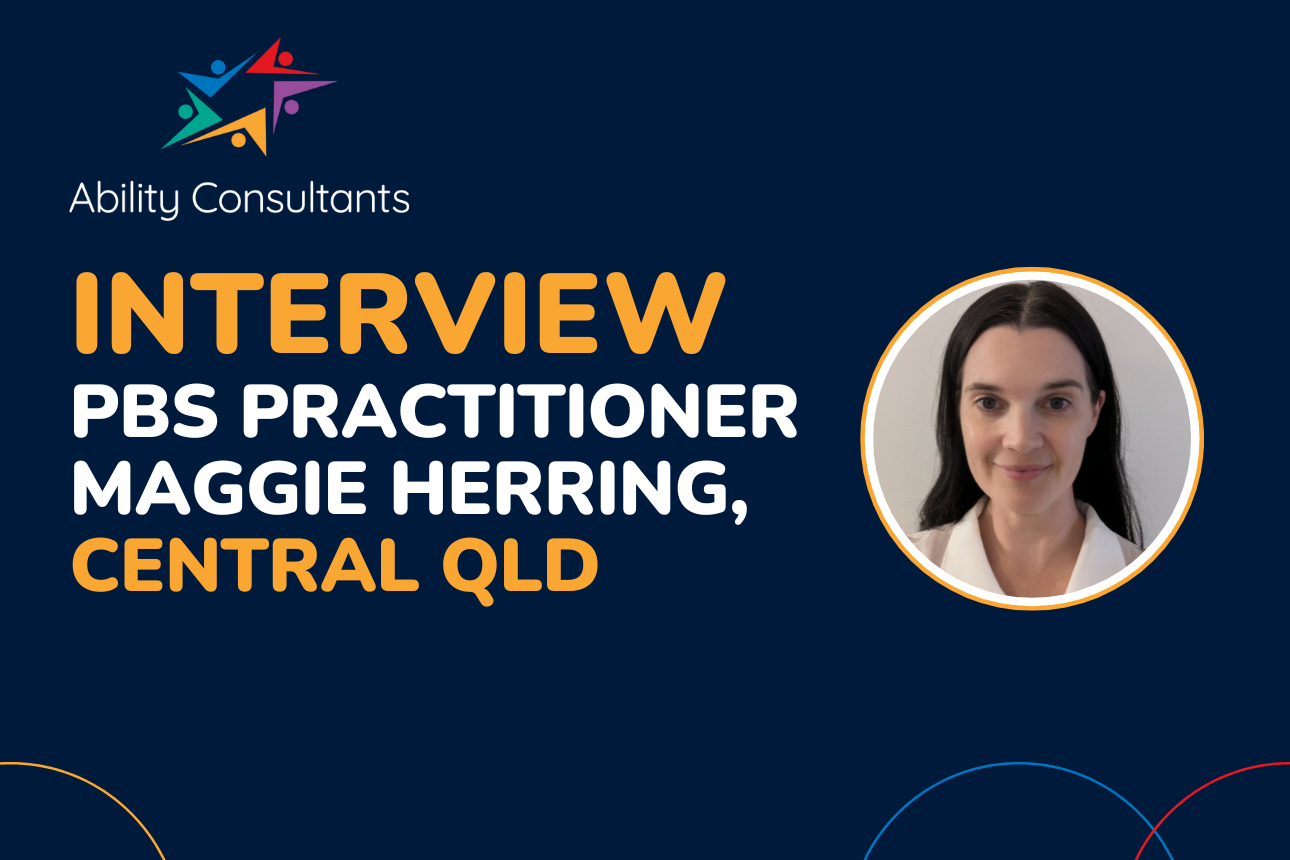
Meet Maggie Herring, Behaviour Support Practitioner supporting Gladstone, Rockhampton and Bundaberg
Welcome Maggie! It’s so wonderful to have a team member up in Central Queensland! Tell us about you!
Thank you! I’m super excited to join the team in Central Queensland! A little about me—I’m originally from Canada, so you’ll catch me saying “eh” and maybe even hear me switch into French once in a while. I’m a proud mum and stepmum to two beautiful kids who keep me on my toes! I have a passion for all things nature, art, animals, and just making life a bit more fun.
With qualifications in Health Science and Psychology, I’ve spent over five years working in therapeutic settings with people with disabilities, helping them navigate life’s ups and downs and overcome barriers.
I also have a passion for animals and experience in equine therapy, which has shown me the incredible impact that animals can have on healing and growth. I love what I do because it lets me blend my love for helping others with my passion for creativity, connection, and the healing power of nature. And let’s be real—getting to do all of this in a place as gorgeous as Central Queensland is just the icing on the cake!
Your personal mission is to promote dignity, autonomy and resilience in your clients. How do you achieve this through Positive Behaviour Support?
Promoting dignity, autonomy, and resilience is at the core of my practice. Through Positive Behaviour Support, I focus on understanding the individual’s unique experiences, goals, and challenges. I work closely with clients, as well as their families and support networks, to develop tailored strategies that respect their preferences and enhance their independence.
By involving clients in the decision-making process and giving clients a voice in their support plans, I help build their sense of control and ownership over their lives. I emphasise strengths-based approaches, celebrating successes, and reinforcing positive behaviours to foster resilience. My aim is to empower clients, along with their families and support teams, helping them navigate challenges confidently and with dignity.
You have an interest in green therapy and ecopsychology — tell us more about these and how these approaches influence your work as a behaviour support practitioner.
Green therapy and ecopsychology are approaches that focus on the healing power of nature and our connection to the natural world. I believe that spending time outdoors and engaging with nature can be incredibly beneficial for mental health and overall well-being.
These approaches influence my work by integrating nature-based activities and environments into behaviour support plans, where appropriate. For example, I might encourage outdoor walks, gardening, or nature-based sensory activities as part of a therapeutic approach.
By incorporating green therapy, I aim to provide holistic support that not only addresses behavioural needs but also promotes emotional well-being, reduces stress, and fosters a sense of peace and connection. Nature has a unique way of grounding us, and I’m passionate about leveraging this in my practice to enhance the quality of life for my clients.
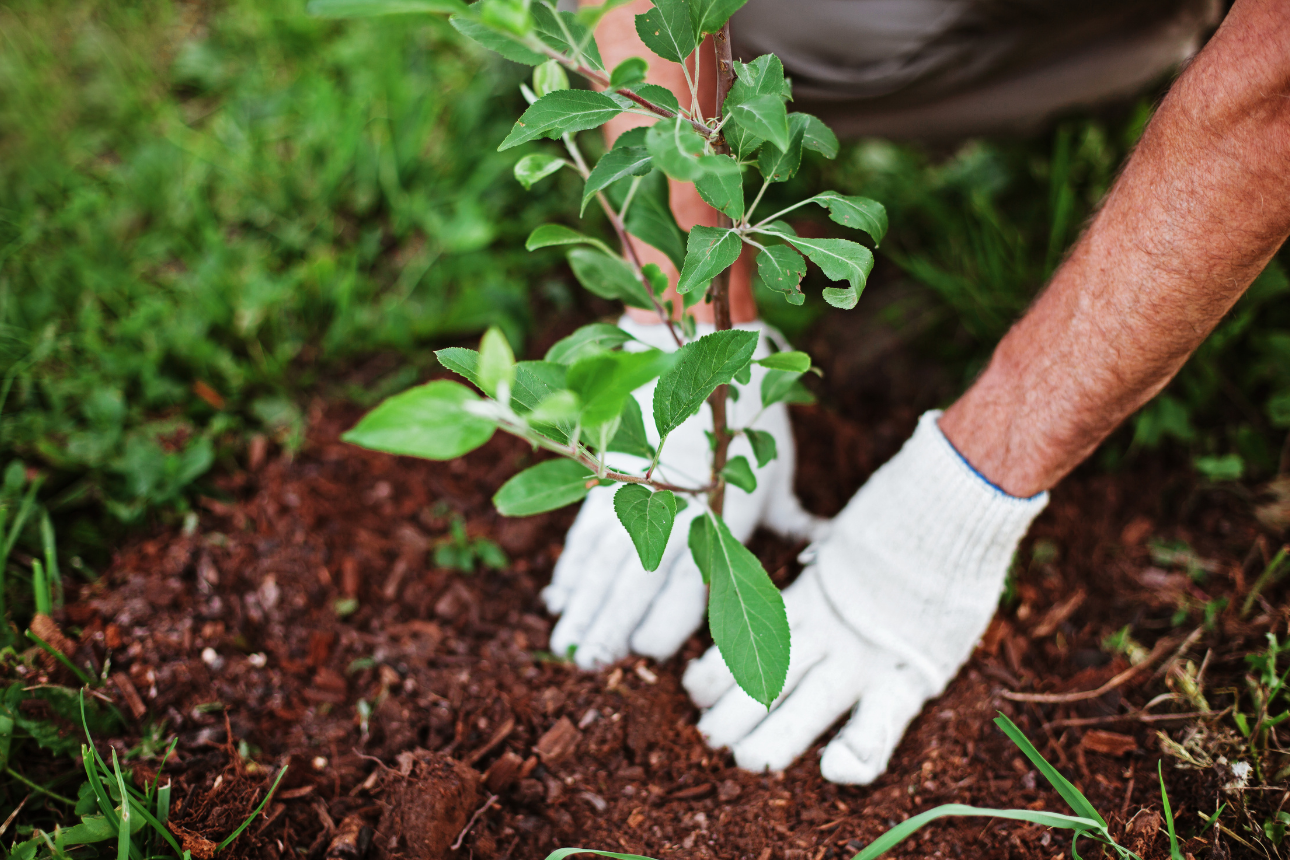
About Positive Behaviour Support and its impact
How would you explain Positive Behaviour Support to someone who has never heard of it?
Positive Behaviour Support (PBS) is an approach designed to improve an individual’s quality of life by understanding the reasons behind behaviours of concern or harm and addressing them in a compassionate and proactive way.
Imagine PBS as a toolkit that helps us work together to identify what triggers certain behaviours and what the person might be trying to communicate through them. By understanding these triggers, we can develop personalised strategies that make everyday life easier and more enjoyable. This might include adjusting the environment, providing clear communication, or introducing calming activities that help the individual feel more in control.
The ultimate goal of PBS is to empower individuals by promoting positive behaviours, enhancing their independence, and improving their relationships with others. It’s about building on strengths, celebrating successes, and creating a supportive network that helps people live happier, more fulfilling lives.
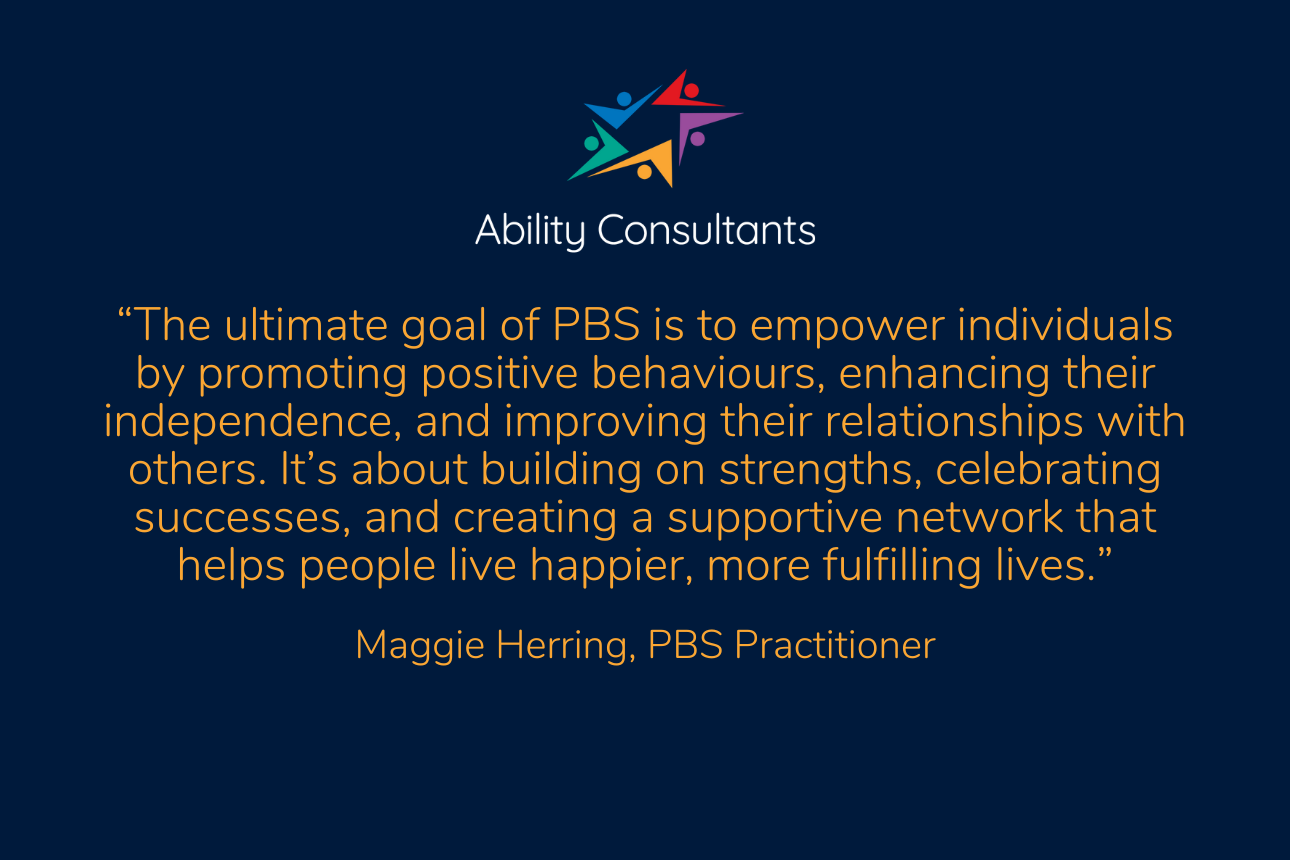
Can you share an example of how you’ve seen Positive Behaviour Support improve a person’s quality of life?
One example involves a client who exhibited frequent outbursts of aggression, particularly during transitions between activities and when confronted with tasks they found difficult. These behaviours were impacting their ability to participate in school and community settings, leading to social isolation and frustration for both the client and their support network.
Through Positive Behaviour Support, we identified that the primary triggers for these outbursts were changes in routine, unexpected demands, and tasks that were perceived as too challenging or overwhelming. To address these, I worked closely with the client, their family, and their school to develop a set of personalised strategies.
We implemented the use of transition cues, such as countdown timers and visual prompts, to prepare the client for upcoming changes in activities. Additionally, tasks were broken down into smaller, more manageable steps, and we introduced the use of visual aids like checklists and storyboards to help the client understand and navigate tasks.
We also incorporated regular sensory breaks throughout the day, allowing the client to engage in calming activities like listening to music or using a weighted blanket, which helped reduce anxiety and prevent escalation. Positive reinforcement was a key component, with the client receiving immediate praise or engaging in a preferred activity after successfully managing a transition or completing a task.
Over time, these strategies led to a significant reduction in aggressive behaviours. The client became more comfortable with transitions and challenges, leading to increased participation in school and social activities. The improvement not only enhanced the client’s quality of life but also fostered a more positive and supportive environment at home and school, where everyone felt more equipped to handle challenges together.

You support NDIS participants throughout Central Queensland and Wide Bay. NDIS participants often have a support team including family, NDIS providers, medical and allied health providers. How do you work collaboratively to ensure you are meeting your client’s needs and goals?
Collaboration is key to providing effective Positive Behaviour Support, especially when working with NDIS participants who have a diverse team of supporters. I make it a priority to communicate regularly with all members of the support team, including family, school staff, other NDIS providers, and medical and allied health professionals.
By sharing insights, strategies, and progress updates, we can ensure that everyone is aligned and working towards the same goals. I also value the input and perspectives of each team member, recognising that everyone plays a crucial role in supporting the participant.
Together, we create a cohesive and comprehensive support plan that addresses the client’s unique needs and goals, ensuring that our approach is holistic, consistent, and person-centred. This collaborative effort helps to maximise the impact of Positive Behaviour Support and enhances the overall quality of life for the individuals we support.
Positive Behaviour Support in Gladstone, Rockhampton and Bundaberg
Central Queensland and Wide Bay are geographically very large areas. In which communities do you provide Positive Behaviour Support?
Central Queensland and Wide Bay are definitely vast regions! While I can’t offer in-person services to all of Wide Bay and Central Queensland, I do provide in-person Positive Behaviour Support in many communities across the area. I regularly travel to the following areas:
- Central Queensland including Gladstone, Rockhampton, Tannum Sands, Boyne Island, Agnes Water and Biloela.
- Wide Bay including Bundaberg, Hervey Bay, Bargara, Coral Cove, Elliott Heads.
- Bundaberg including Kepnock, Walkervale, Avenell Heights, Ashfield, Svensson Heights, Norville, Avoca, Millbank, Kalkie and Bundaberg Central, North and East.
- Hervey Bay including Booral, Burrum Heads, Craignish, Dundowran, Eli Waters, Kawungan, Pialba, Point Vernon, River Heads, Scarness, Torquay, Urangan, Urraween, Wondunna.
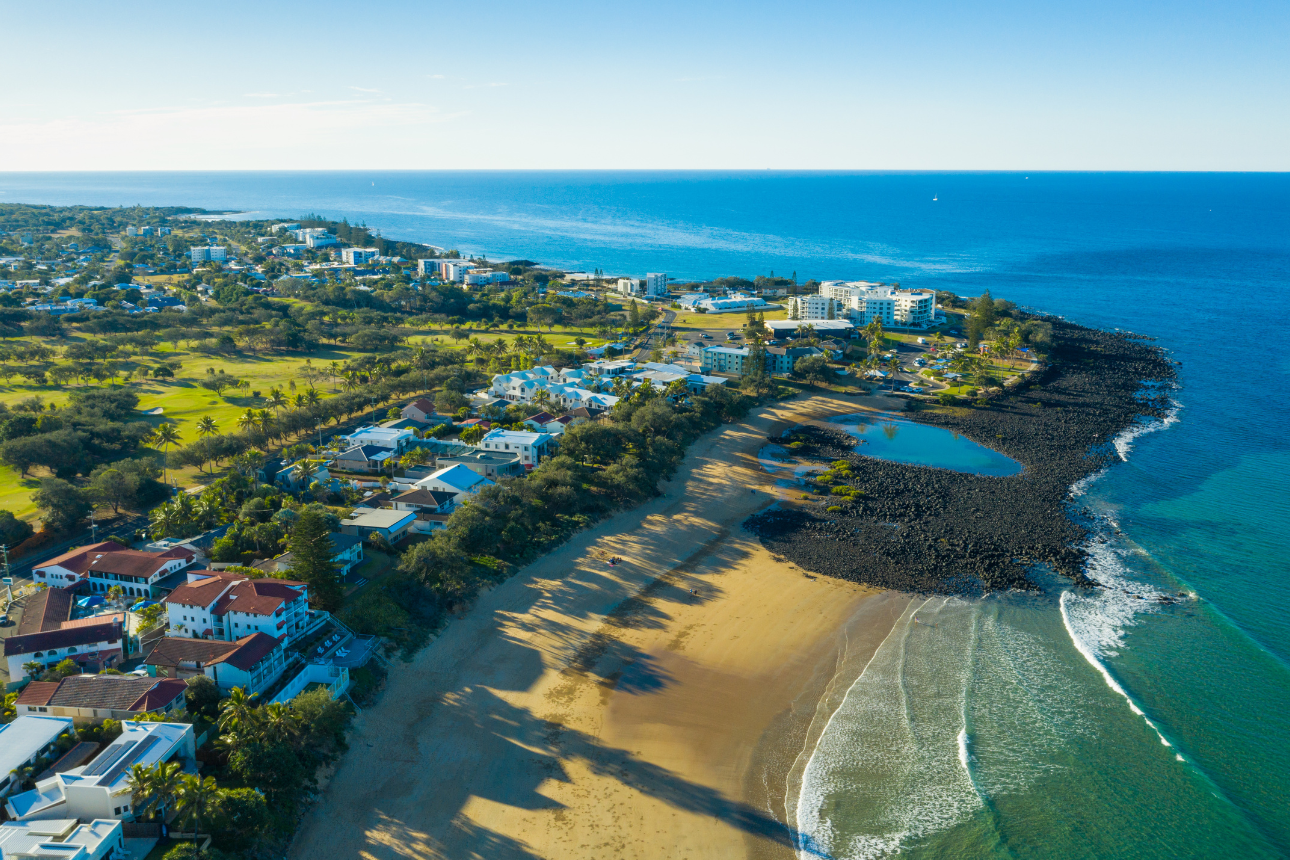
Given the significant geographical area in Central Queensland and Wide Bay, how do you provide Positive Behaviour Support?
Central Queensland and Wide Bay are huge—Queensland alone is about the size of Mexico or seven times the size of Great Britain! But no worries, I’ve got it covered. I provide Positive Behaviour Support through a mix of in-person sessions, telePBS (telehealth), or both, depending on what works best for you.
Whether I’m hitting the road to come see you, or we’re catching up over a video call, I make sure distance isn’t a barrier to getting the support you need. It’s all about being flexible and making it work, so no matter where you are—from the beautiful beaches of Hervey Bay to the heart of Rockhampton—we’ll find a way to connect and keep things moving forward. After all, in Queensland, we know how to make things happen, even when we’re miles apart!
Do you support NDIS participants with specific diagnoses or of specific age groups?
I work with a diverse range of NDIS participants across various age groups and with a variety of diagnoses. My approach is highly individualised, so I don't limit my support to specific conditions or age brackets.
I have experience working with children, adolescents, and adults, supporting individuals with Autism Spectrum Disorder (ASD), Intellectual and Developmental Disabilities, ADHD, anxiety and mood disorders, sensory processing challenges, and complex behavioural needs. My practice also extends to individuals with physical disabilities, acquired brain injuries, and those with dual diagnoses or co-occurring conditions.
My goal is to tailor Positive Behaviour Support to meet the unique needs of each participant, regardless of their diagnosis or age. Whether it's helping a child navigate school settings, supporting a teenager with social skills, or assisting an adult in achieving greater independence, I aim to promote dignity, autonomy, and resilience in every individual I work with. My practice is inclusive and adaptable, ensuring that all NDIS participants can benefit from personalised, strengths-based support.
How to get started with Positive Behaviour Support in Gladstone, Rockhampton or Bundaberg
How can NDIS participants in Central Queensland and Wide Bay get started with Positive Behaviour Support?
The first step is to make a referral for Positive Behaviour Support on our website. You are welcome to make a referral anytime. You can make your own referral, or a member of your support team can make a referral on your behalf.
If you have any questions about Positive Behaviour Support in Central Queensland or Wide Bay, please feel welcome to call our team on 1300 694 625 or send a message using our contact form.
Life in Central Queensland
What do you love most about living in Central Queensland?
What I love most about living in Central Queensland is the perfect mix of natural beauty, community spirit, and that wonderfully laid-back lifestyle—especially in Agnes Water. The pristine beaches, lush landscapes, and endless opportunities to be outdoors make it feel like I’m on a permanent holiday. Growing up in a small country town in Canada, I’ve always valued that close-knit, everyone-knows-your-name vibe, and Agnes Water definitely has it in spades.
Raising my family here means we get to enjoy simple joys like beach picnics, trail adventures, and just soaking up nature together. There’s something really special about watching my kids grow up with those same small-town values I had, but with the added bonus of warm weather and coastal living. Plus, every sunset here feels like a little slice of magic. It truly feels like the best of both worlds, where every day offers a blend of adventure and tranquillity that’s hard to beat!
Accessible recreation activities in Central Queensland and Wide Bay
Can you tell us about accessible recreation activities or locations in Central Queensland and Wide Bay?
Wide Bay and Central Queensland offer a range of accessible activities and locations that ensure everyone can enjoy the natural beauty and recreational opportunities this region has to offer. Whether it’s a day at the beach, exploring scenic pathways, or enjoying wildlife encounters, there’s something for everyone to enjoy. Here’s a list of a few of my favourites:
Gladstone
Gladstone is home to several accessible recreational spots. The Gladstone Marina Parklands is a great family-friendly area with accessible pathways, picnic spots, and beautiful views of the harbour. The parklands also feature wheelchair-accessible fishing platforms, making it a perfect spot for everyone to enjoy a day by the water. East Shores Precinct is another fantastic location with wide pathways, water play areas, and accessible BBQ facilities, offering a vibrant spot for relaxation and socialising.
Rockhampton
Rockhampton’s Botanic Gardens and Zoo provide a fully accessible environment with flat paths throughout the gardens and zoo areas. This makes it easy for all visitors to explore and enjoy the diverse range of animals and plants on display. The Capricorn Caves, just outside Rockhampton, offer an accessible cave tour designed for visitors with mobility impairments, allowing everyone to experience the unique limestone formations.
Agnes Water and 1770
Agnes Water and the Town of 1770 offer scenic coastal experiences with accessible features. The Paperbark Forest Boardwalk is a short, flat walk through a serene paperbark forest, suitable for wheelchairs and strollers. The town also offers accessible kayaking and stand-up paddleboarding for those looking to explore the beautiful waterways in a fun and inclusive way.

Bundaberg
In Bundaberg, the Mon Repos Turtle Centre is accessible and offers a unique experience to see nesting and hatching turtles. The centre provides accessible pathways and viewing platforms to ensure everyone can enjoy this magical experience. Additionally, the Bundaberg Botanic Gardens have wheelchair-accessible paths and tranquil spaces perfect for a relaxing day out.
Bargara
The Bargara Esplanade near Bundaberg is a picturesque coastal pathway that is fully accessible, offering beautiful views, accessible picnic areas, and beach access mats. It’s an ideal spot for a leisurely stroll, a family outing, or a quiet place to enjoy the coastal breeze.
Hervey Bay
Hervey Bay is renowned for its whale watching tours, and several operators offer accessible boats to ensure everyone can experience these majestic creatures up close. The Hervey Bay Esplanade offers a long, flat, wheelchair-friendly pathway along the coastline, with plenty of accessible parks, cafes, and picnic areas along the way. For a day at the beach, visitors can access beach wheelchairs, making it easier for those with mobility needs to enjoy the sand and sea.
About Ability Consultants
Ability Consultants is a Registered NDIS Provider in Queensland. We deliver Positive Behaviour Support throughout Central Queensland and Wide Bay, from Gladstone and Rockhampton to Hervey Bay. We also support NDIS participants in Brisbane, the Gold Coast, Ipswich, Moreton Bay, Sunshine Coast and Cairns.
About Positive Behaviour Support



